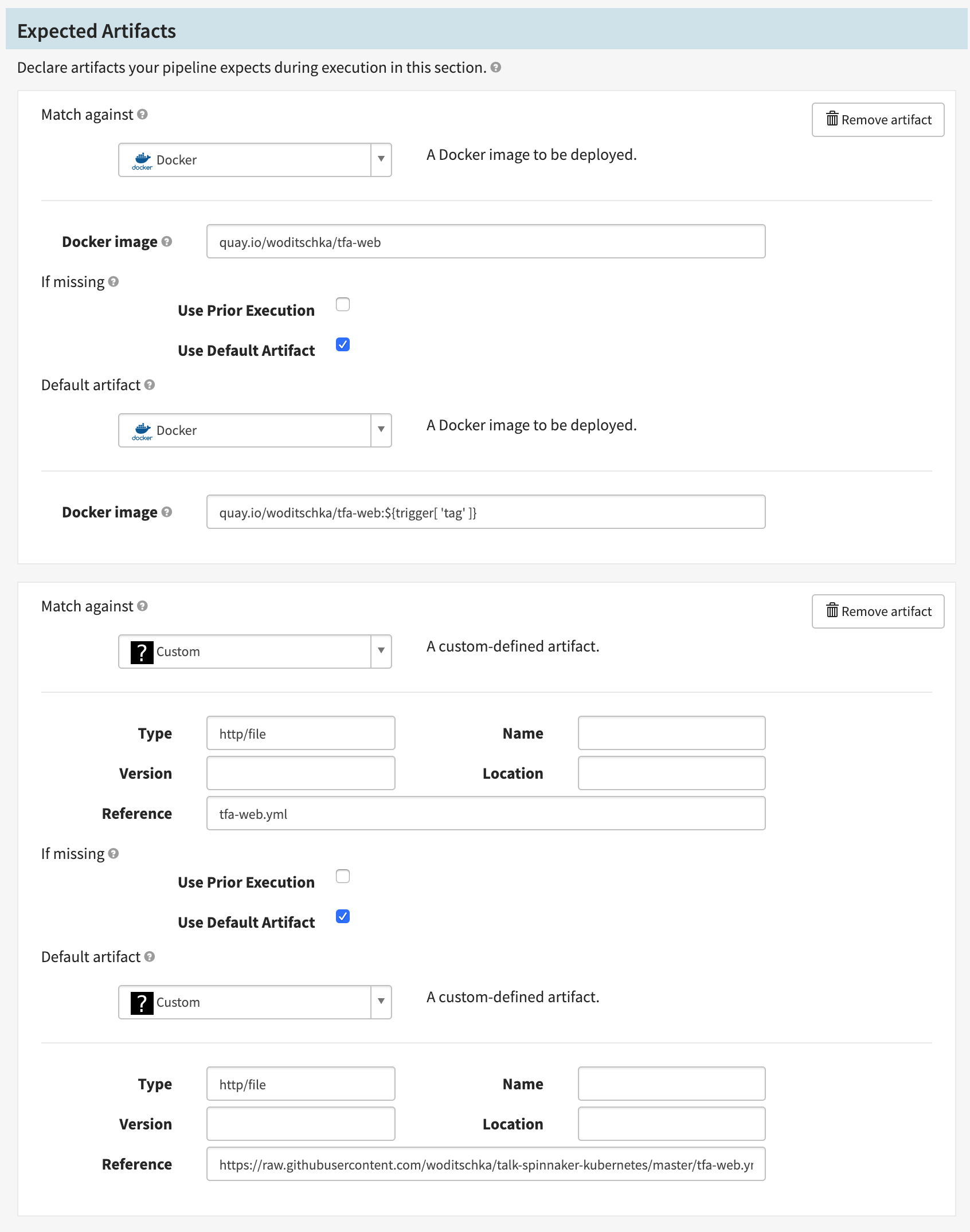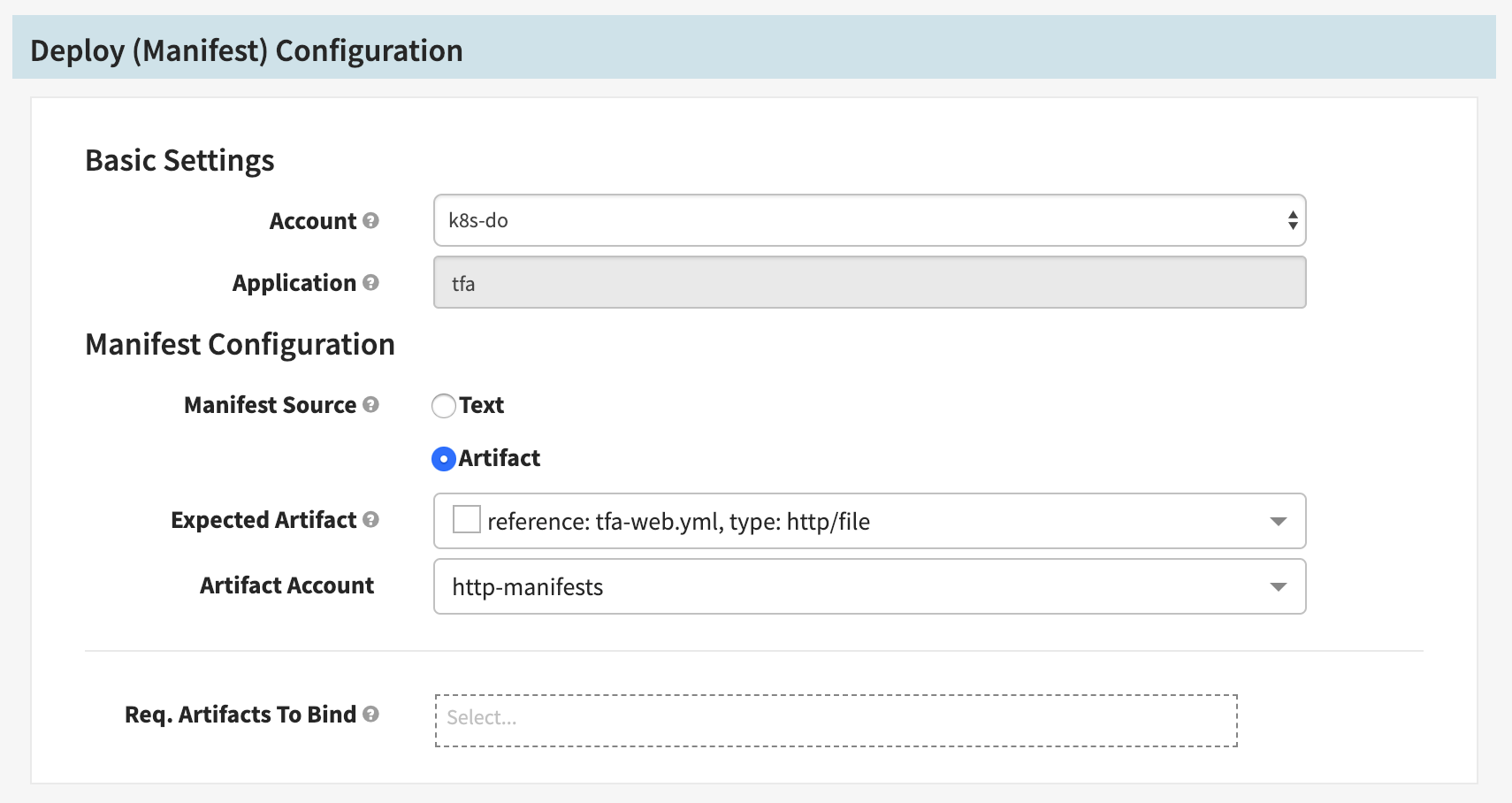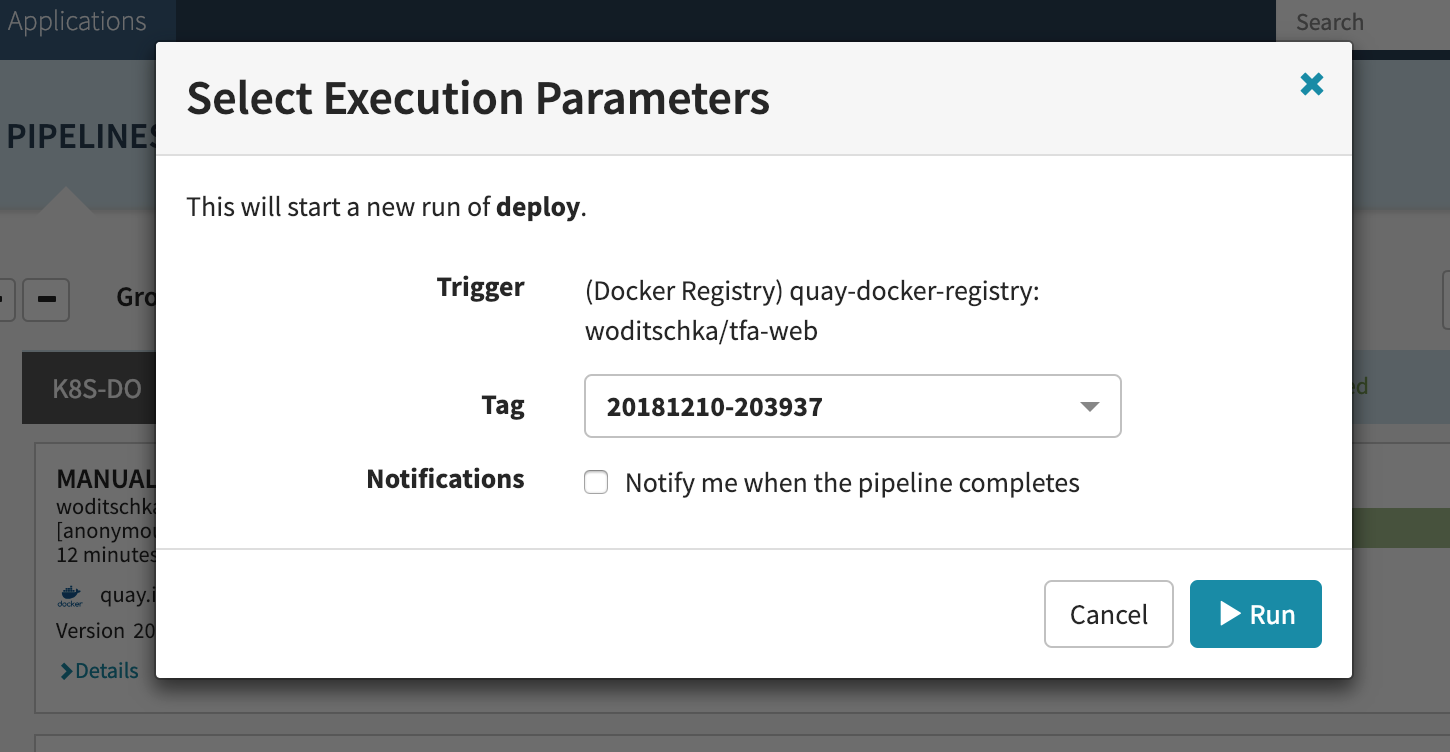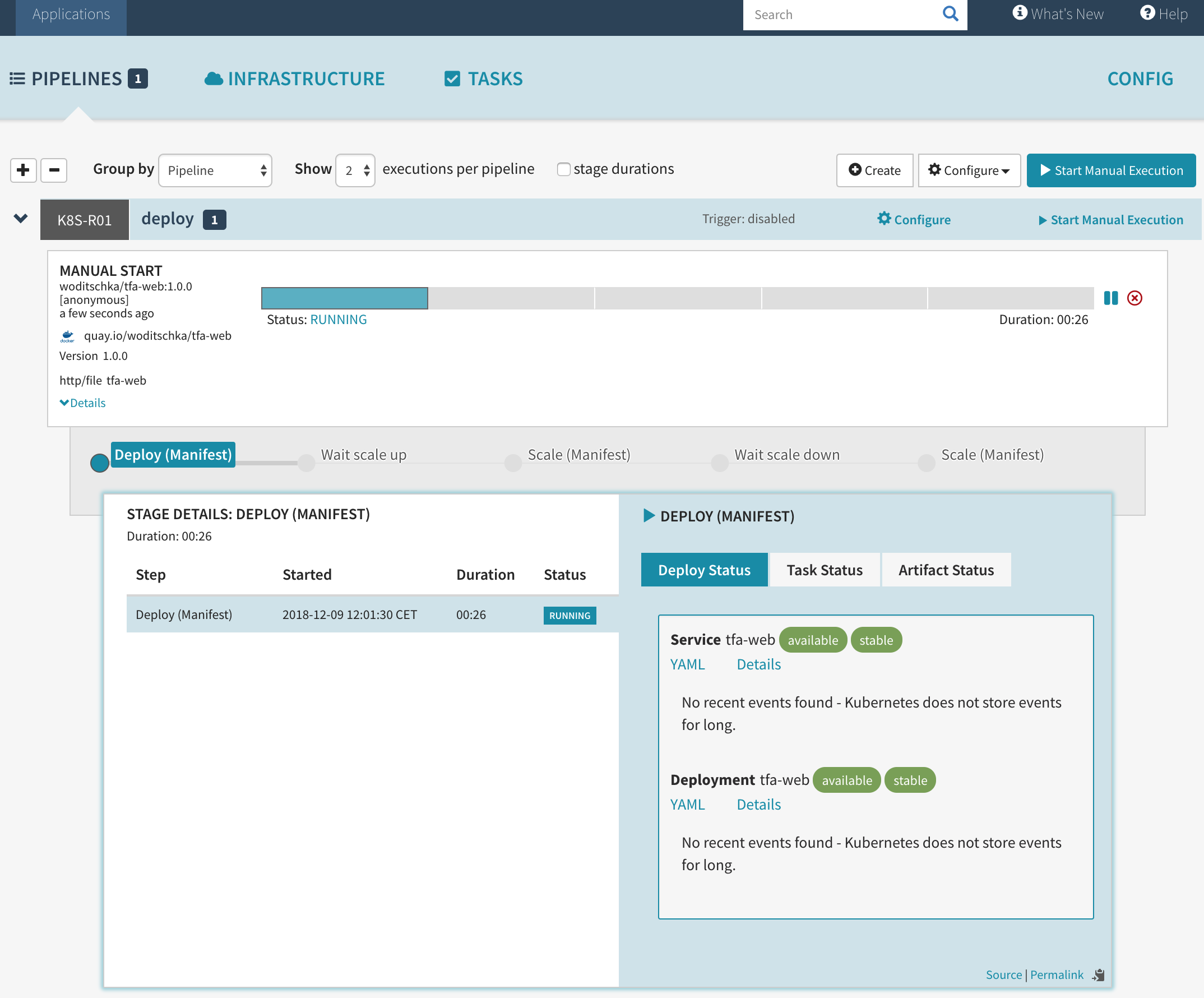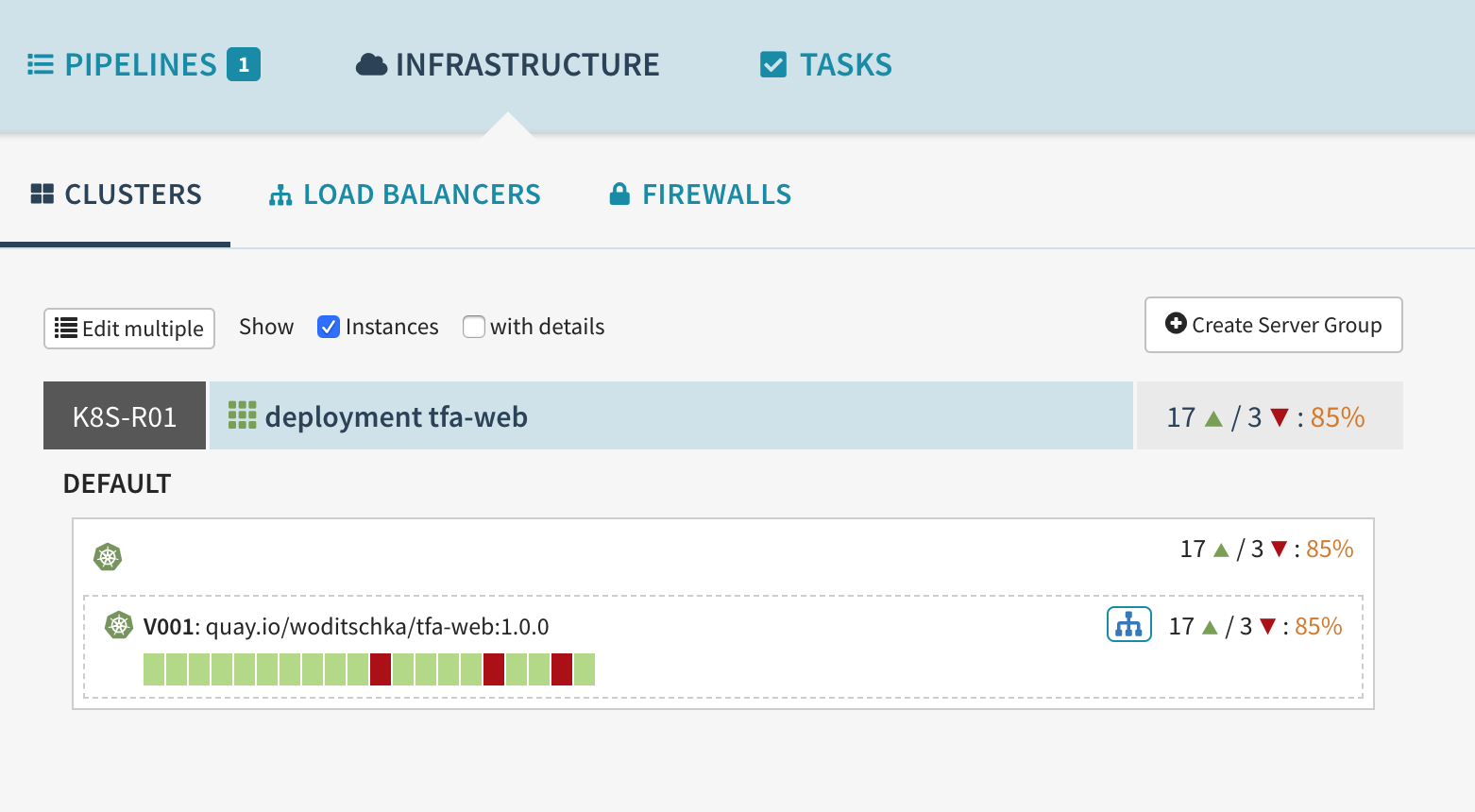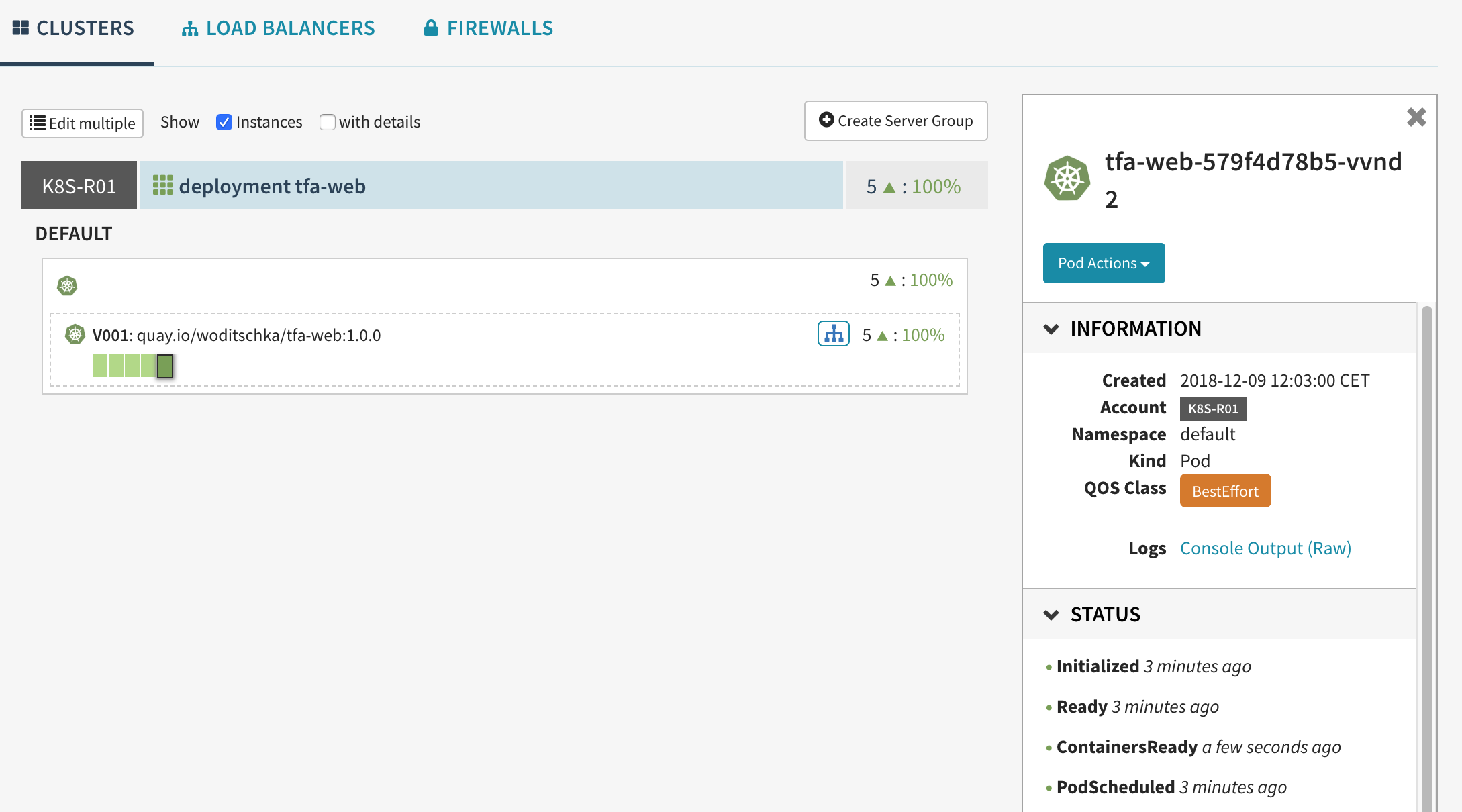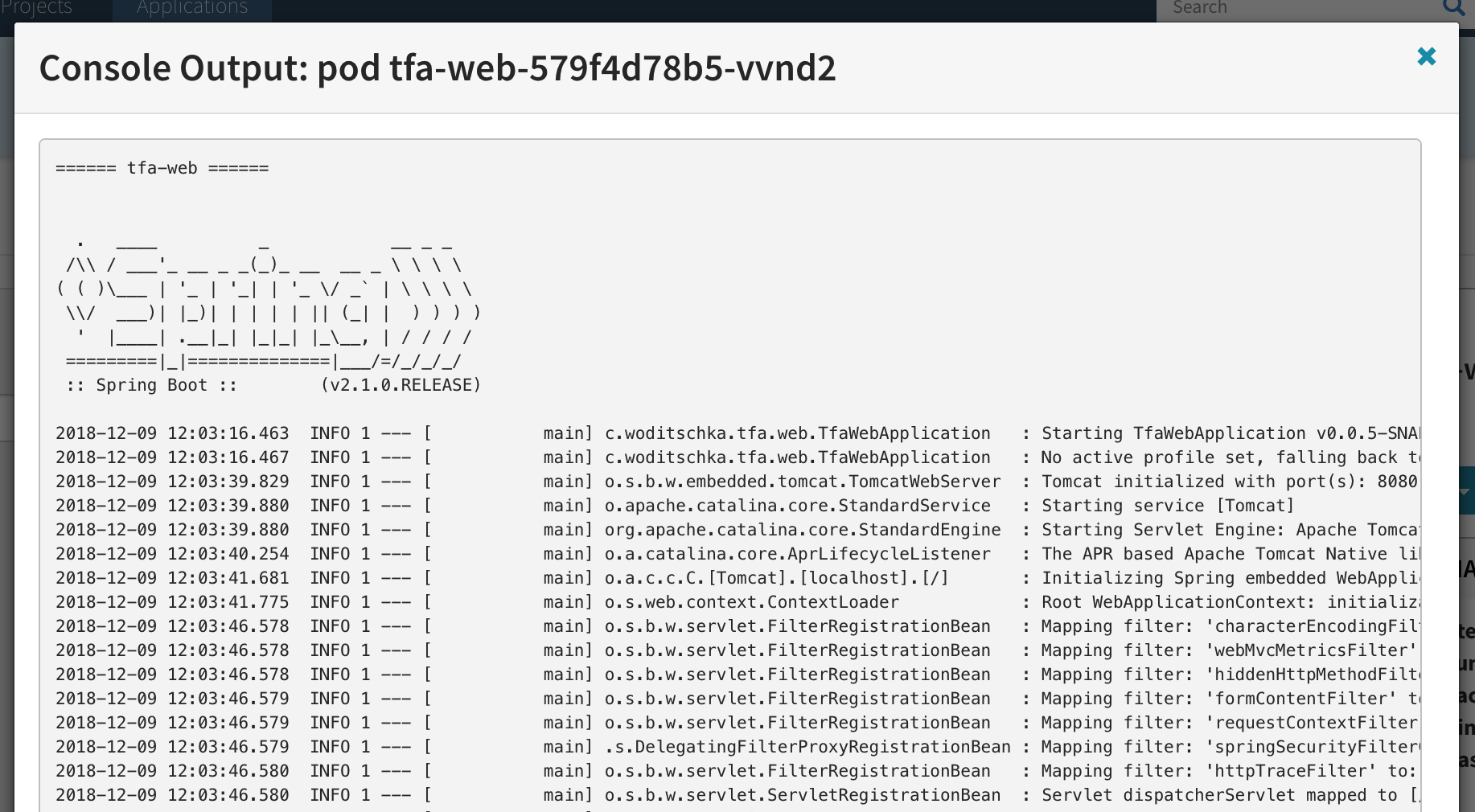CICD Pipeline with Spinnaker and Kubernetes
Talk @ Cloud Native Computing Meetup - Vienna, Austria 2018
What is Spinnaker
"Spinnaker is an open source, multi-cloud continuous delivery platform for releasing software changes with high velocity and confidence"
Features
Spinnaker provides two core sets of features:
- application deployment - construct and manage continuous delivery workflows
- application management - view and manage cloud resources.
Multi-Cloud
Spinnaker supports to deploy to multiple cloud providers
- AWS EC2
- Kubernetes
- Google Compute Engine
- Google Kubernetes Engine
- Google App Engine
- Microsoft Azure
- Openstack
Pipelines
Spinnaker allows to automate releases with pipelines triggered by
- git events
- Jenkins
- Travis CI
- Docker
- CRON
- other Spinnaker pipelines
that
- run tests (integration and system)
- spin up and down server groups (e.g. containers)
- orchestrate rollout withs policies like blue/green, rolling update and canary
- monitor rolouts
Resources
The Projectsite (spinnaker.io) provides great documentation about installation, operation ad use of Spinnaker. Here are some links that I find useful to get started:
- Continuous Delivery With Spinnaker (free ebook)
- Install and Configure Spinnaker
- Presentations and Videos
- Articles
Use Spinnaker
We will create a simple pipeline that deploys a simple web application
- from a Docker Registry (quay.io/woditschka/tfa-web)
- with deployment artifacts (tfa-web.yml - on this github repository)
- to a Kubernetes cluster
- scale the deployment up and down
In this simple installation Spinnaker is not exposed to the Internet due to the fact that https and authentication is not configured, so we use ssh port forwaring to access the Spinnaker server on http://localhost:9000.
ssh -L8084:127.0.0.1:8084 -L9000:127.0.0.1:9000 -L9001:127.0.0.1:9001 root@<spinnaker-server>
Create the application
Use Actions > Create Application to create the 'tfa' Applicaton
- Name: tfa
- email:
- Instance Port : 8080
Create the pipeline
Use Pipelines > Create
- Pipeline Name: deploy
Configure the Docker-Registry trigger
Configure the Expected Artifacts
Configure manifest deployment
Start the deployment
View the deployed Application
Use Infrastructure > Clusters to view the Application
To see more detail select a instance:
To see the logs of the pod select 'Console Output'
Install Spinnaker
This demo will executed on servers running on https://cloud.digitalocean.com:
- Kubernetes 1.12 ckuster
- Spinnaker controlling the Kubernetes cluster
Kubernetes Cluster on Digital Ocean
Digital Ocean provides manages clusters you can soin up in a few mintes:
https://cloud.digitalocean.com/kubernetes
Follow the Instuctions on the website to ceeate and access the cluster.
install kubernetes dashboard
https://kubernetes.io/docs/tasks/access-application-cluster/web-ui-dashboard/
kubectl create -f https://raw.githubusercontent.com/kubernetes/dashboard/master/src/deploy/recommended/kubernetes-dashboard.yaml
create kubernetes dashboard user
kubectl apply -f ./dashboard-admin.yaml
show kubernetes dashboard user token
kubectl -n kube-system describe secret $(kubectl -n kube-system get secret | grep admin-user | awk '{print $1}')
Add spinnaker serviceaccount
kubectl apply -f ./spinnaker-service-account.yaml
Set spinnaker serviceaccount permissions
kubectl create clusterrolebinding --user system:serviceaccount:default:spinnaker-service-account spinnaker --clusterrole edit
Get spinnaker serviceaccount secret
SERVICE_ACCOUNT_TOKEN=`kubectl get serviceaccounts spinnaker-service-account -o jsonpath='{.secrets[0].name}'`
kubectl get secret $SERVICE_ACCOUNT_TOKEN -o jsonpath='{.data.token}' | base64 --decode
Spinnaker Server (localdebian)
On a fresh instance of Ubuntu 16.04 from https://cloud.digitalocean.com
Install Firewall
ufw status
ufw default deny incoming
ufw default allow outgoing
ufw allow ssh
ufw --force enable
Update system
apt -y update
apt -y upgrade
apt -y autoremove
Install Halyard CLI
Halyard is the CLI to configure and deploy Spinnaker.
Add halyard user
useradd -m -d /home/halyard halyard
echo '%halyard ALL=(ALL) NOPASSWD: ALL' >> /etc/sudoers
Install halyard
wget https://raw.githubusercontent.com/spinnaker/halyard/master/install/debian/InstallHalyard.sh
chmod +x InstallHalyard.sh
./InstallHalyard.sh --user halyard -y
Install Kubernetes CLI
apt install -y apt-transport-https
curl -s https://packages.cloud.google.com/apt/doc/apt-key.gpg | sudo apt-key add -
echo "deb https://apt.kubernetes.io/ kubernetes-xenial main" | sudo tee -a /etc/apt/sources.list.d/kubernetes.list
apt update
apt install -y kubectl
minio - local S3 server
In this demo Spinnaker uses S3 to store it's configuration. We use https://www.minio.io to set up a local S3 server running on Docker.
Install Docker
https://docs.docker.com/installation/ubuntulinux
wget -qO- https://get.docker.com/ | sh
Install minio
mkdir -p /opt/docker/minio/data
mkdir -p /opt/docker/minio/config
chmod -R uga+rwX /opt/docker
docker run -d --restart=always --name minio -p 127.0.0.1:9001:9000 -e MINIO_ACCESS_KEY='spinnaker' -e MINIO_SECRET_KEY='spinnaker' -v '/opt/docker/minio/data:/data' -v '/opt/docker/minio/config:/root/.minio' minio/minio server /data
Install and start Redis
apt install -y redis-server
apt install -y redis-tools
systemctl start redis
Configure and deploy Spinnaker
Change to halyard linux user
su halyard
cd /home/halyard/
Configure Kubernetes access config
mkdir cd /home/halyard/.kube
Copy the Kubernetes config to /home/halyard/.kube/config
hal config deploy edit config--type localdebian
hal config version edit --version 1.11.0
hal config edit --timezone 'Europe/Vienna'
Docker registry access
echo <access-key> | hal config provider docker-registry account add quay-docker-registry --address quay.io --username '<username>' --password
hal config provider docker-registry enable
Kubernetes cluster access
hal config provider kubernetes account add k8s-r01 --context k8s-r01 --provider-version v2 --docker-registries quay-docker-registry
hal config provider kubernetes enable
S3 storage
mkdir -p /home/halyard/.hal/default/profiles
cat >/home/halyard/.hal/default/profiles/front50-local.yml <<'EOL'
spinnaker.s3.versioning: false
EOL
echo 'spinnaker' | hal config storage s3 edit --endpoint http://127.0.0.1:9001 --region us-east-1 --access-key-id 'spinnaker' --bucket 'spinnaker' --secret-access-key
hal config storage edit --type s3
Artifact - http
hal config features edit --artifacts true
hal config artifact http enable
hal config artifact http account add http-manifests
enable gate (api) access
mkdir -p /home/halyard/.hal/default/service-settings
cat >/home/halyard/.hal/default/service-settings/gate.yml <<'EOL'
host: 127.0.0.1
EOL
enable deck (ui) access
mkdir -p /home/halyard/.hal/default/service-settings
cat > /home/halyard/.hal/default/service-settings/deck.yml <<'EOL'
host: 127.0.0.1
EOL
deploy spinnaker
sudo hal deploy apply --flush-infrastructure-caches
enable services
sudo systemctl enable gate
sudo systemctl enable orca
sudo systemctl enable igor
sudo systemctl enable front50
sudo systemctl enable echo
sudo systemctl enable clouddriver
sudo systemctl enable rosco



